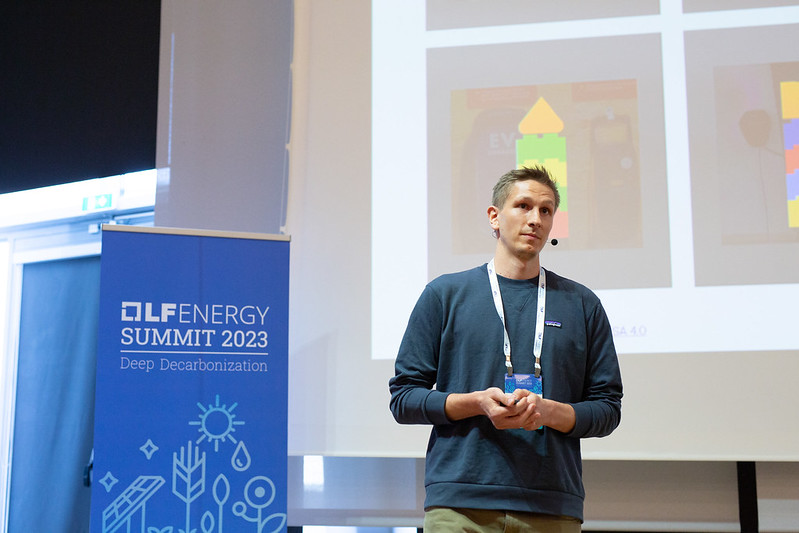LF Energy Summit 2023 Recap: Revolutionizing EV Charging with EVerest: A Breakthrough Operating System
In the ever-evolving landscape of electric vehicle (EV) technology, one critical challenge has stood out: the complexity of EV charging infrastructure. But fear not, because at LF Energy Summit 2023, Piet Gömpel from Pionix presented a solution (video follows below) that could reshape the way we approach EV charging. Enter EVerest, an innovative operating system designed to tackle the intricacies of EV charging infrastructure head-on.
Understanding the EV Charging Ecosystem
EV charging might seem straightforward at first glance – plug in your car, and it should charge, right? Unfortunately, the reality is not always so simple. The complex ecosystem involves car manufacturers, charging station operators, energy management systems, and more. These diverse players introduce a plethora of protocols and standards that govern communication between the EV, charger, and backend systems.
Unraveling the Protocol Puzzle
EVerest addresses the challenges posed by these protocols and standards. One key protocol, IEC 61851, outlines the requirements for charging a car. Another, ISO 15118, uses power line communication to enable high-level communication between the EV and the charger. Additionally, OCPP (Open Charge Point Protocol) facilitates communication between charging stations and management systems. These protocols, while essential, contribute to the complexity of EV charging.
The Birth of EVerest: A Game-Changing Solution
EVerest isn’t just another software solution; it’s a comprehensive operating system that harmonizes the different protocols and standards into a cohesive framework. This intelligent operating system employs a modular architecture, breaking down the communication into manageable pieces. This modular approach simplifies the development process and enables efficient implementation of protocols.
The EVerest Advantage: Intelligent Modules and MQTT Communication
EVerest utilizes modules, individual Linux processes, to manage specific tasks within the EV charging process. These modules communicate through MQTT (Message Queuing Telemetry Transport) brokers, facilitating seamless interaction between components. This architecture ensures that each module is loosely coupled, making it easier to swap and upgrade individual components without disrupting the entire system.
Simulation: Paving the Way for Seamless Integration
EVerest offers a unique simulation capability that expedites the integration of the operating system. Through software in the loop (SIL) and hardware in the loop (HIL) simulations, developers can test and refine their implementations before deploying them in real-world scenarios. This simulation feature accelerates the development process, resulting in quicker adaptation and integration of EVerest with various hardware configurations.
The Collaborative Power of EVerest
Pionix isn’t taking this journey alone. Collaborators, including charge controller manufacturers like ChargeByte, have joined the project. This collaboration is a testament to the viability and potential impact of EVerest in the EV charging industry. It showcases how open source projects can bring diverse industry stakeholders together to revolutionize an entire sector.
The Future Beckons: EVerest’s Vision
EVerest isn’t just about simplifying the current EV charging landscape; it’s about future-proofing it. With the ability to adapt and integrate with evolving protocols and standards, EVerest positions itself as a key enabler for the growth of EV infrastructure. By providing a standardized, intelligent, and modular solution, EVerest paves the way for smoother, more efficient, and widespread EV charging.
